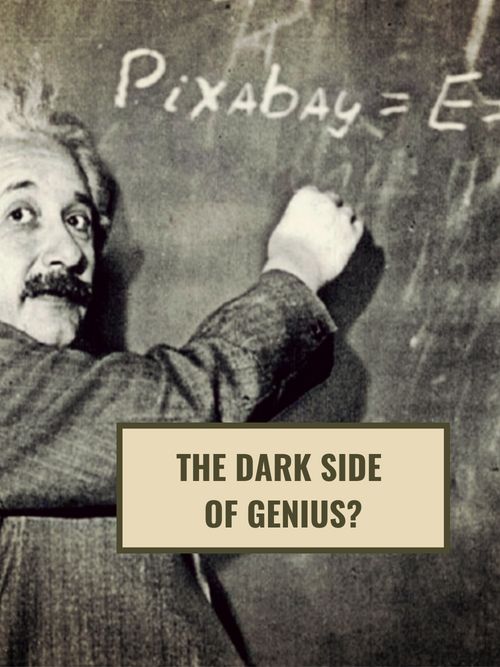Why creative people are also (lowkey) crazy
Mar 08, 2022 · 2 mins read
0
Share
Introduction. Hans Eysenck, a 20th century psychologist, explores the relationship between creativity and mental illness in his book Genius. He writes: "In Latin there is no linguistic distinction between madness and inspiration." Learn about the link between genius and madness👇
Save
Share
Latent inhibition is the process via which certain stimuli are ignored. We can't pay attention to everything. To function well, we become indifferent to most external stimuli and save attention for what matters. But both creatives and schizophrenics have low latent inhibition.
Save
Share
What does this mean? Creative people - and schizophrenic patients - have a wide "associative horizon." They are better than average people at associating distant ideas, events, and theories. This can lead to breakthrough insight - or delusions.
Save
Share
The role of dopamine. Excessive dopamine lowers latent inhibition, allowing a person to take in more sensory data, entertain wilder ideas, and come up with novel solutions. High dopamine is found in both creatives and schizophrenics.
Save
Share
The role of serotonin. Low serotonin, like high dopamine, also boosts creativity. But low serotonin is a neurological marker for depression. Both the depressed and the geniuses are dissatisfied with everything; but the genius has the added motivation to crack an important puzzle.
Save
Share
The bipolar nature of genius. A lot of great acts of genius occur in "states of low arousal" such as "dreamy pre-sleep, sitting in train, or on holiday." A "high arousal" state follows - the genius works to prove his insight. These bipolar swings are seen in manic-depression too.
Save
Share
The numbers. Geniuses have a high rate of severe psychopathology: "18% for the scientists, 31% for the composers, 38% for the artists, 26% for the thinkers, and 46% for the writers." However, this potential for mental disease often doesn't translate. Let's understand this👇
Save
Share
Psychopathology is the potential for a mental breakdown; psychosis is the actual breakdown. Geniuses have a "low lifetime prevalence" of actual psychosis: 1.7%. Eysenck: "Actual psychosis is destructive; high psychopathology short of psychosis is apparently beneficial."
Save
Share
At odds with the world. Rebel too much, antagonize authorities, and you might be diagnosed with "antisocial personality disorder." But geniuses, by definition, are engaged in a "battle against orthodoxy." By design, they are against society's consensus and norms.
Save
Share
Bottom line. Geniuses are closer to mental illness than the normal person. They show bipolar swings of low and high arousal, can make connections that seem absurd to everyone else, and typically antagonize society with their breakthrough ideas and action.
Save
Share
0
